Sex Reassignment Surgery (Male to Female) in India
Search and Compare the Best Clinics and Doctors at the Lowest Prices for Sex Reassignment Surgery (Male to Female) in India
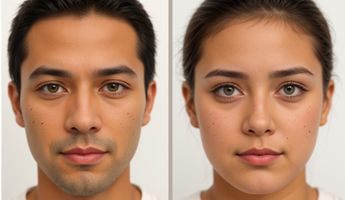
Find the best clinics for Sex Reassignment Surgery (Male to Female) in India
No pricing info available
Thailand offers the best prices Worldwide
Price: $ 2,473
From 168 verified reviews
Rajendra Prasad, 22 September 2020
Being a covid-19 positive patient I received Excellent treatment and advise given by Dr.Ramana rao and nursing staff during my 6days stay at continental hospital. The admission process and descharge processes and return advances should be speeded up.
From 168 verified reviews
vijay gokhale, 18 September 2020
All medical departments under one roof. Spacious. Billing on each department floor. Good qualified doctors. Separate lifts for OPD & indoor patients at many places on each floor. Easy to find if you follow colour strip on each floor. Good helpful staff. Easy appointment.
La Transformationé - Andheri Clinic, located in Bombay, Mumbai, India offers patients Sex Reassignment Surgery (Male to Female) procedures among its total of 42 available procedures, across 7 different specialties. Currently, there's no pricing information for Sex Reassignment Surgery (Male to Female) procedures at La Transformationé - Andheri Clinic, as all prices are available on request only. All procedures and treatments are undertaken by just a small team of specialists, with 3 in total at the Clinic, and they are accredited by APSI - Association of Plastic Surgeons of India
La Transformationé - Bandra Clinic, located in Bombay, Mumbai, India offers patients Sex Reassignment Surgery (Male to Female) procedures among its total of 42 available procedures, across 7 different specialties. Currently, there's no pricing information for Sex Reassignment Surgery (Male to Female) procedures at La Transformationé - Bandra Clinic, as all prices are available on request only. All procedures and treatments are undertaken by just a small team of specialists, with 3 in total at the Clinic, and they are accredited by APSI - Association of Plastic Surgeons of India
La Transformationé - Goregaon Clinic, located in Bombay, Mumbai, India offers patients Sex Reassignment Surgery (Male to Female) procedures among its total of 42 available procedures, across 7 different specialties. Currently, there's no pricing information for Sex Reassignment Surgery (Male to Female) procedures at La Transformationé - Goregaon Clinic, as all prices are available on request only. All procedures and treatments are undertaken by just a small team of specialists, with 3 in total at the Clinic, and they are accredited by APSI - Association of Plastic Surgeons of India
La Transformationé - Bombay Hospital, located in Bombay, Mumbai, India offers patients Sex Reassignment Surgery (Male to Female) procedures among its total of 42 available procedures, across 7 different specialties. Currently, there's no pricing information for Sex Reassignment Surgery (Male to Female) procedures at La Transformationé - Bombay Hospital, as all prices are available on request only. All procedures and treatments are undertaken by just a small team of specialists, with 3 in total at the Hospital, and they are accredited by APSI - Association of Plastic Surgeons of India
La Transformationé - Patna Clinic, located in Kuttisahib Rd, Kochi, India offers patients Sex Reassignment Surgery (Male to Female) procedures among its total of 42 available procedures, across 7 different specialties. Currently, there's no pricing information for Sex Reassignment Surgery (Male to Female) procedures at La Transformationé - Patna Clinic, as all prices are available on request only. All procedures and treatments are undertaken by just a small team of specialists, with 3 in total at the Clinic, and they are accredited by APSI - Association of Plastic Surgeons of India
La Transformationé - Nanavati Hospital, located in Bombay, Mumbai, India offers patients Sex Reassignment Surgery (Male to Female) procedures among its total of 39 available procedures, across 7 different specialties. Currently, there's no pricing information for Sex Reassignment Surgery (Male to Female) procedures at La Transformationé - Nanavati Hospital, as all prices are available on request only. All procedures and treatments are undertaken by just a small team of specialists, with 3 in total at the Hospital, and they are accredited by APSI - Association of Plastic Surgeons of India
- Home
- India
Compare Before & After Photos of _procedure_photos.phpSex Reassignment Surgery (Male to Female)


Front view


Front view
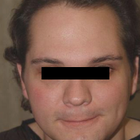

Front view


Front view


Front view


Front view
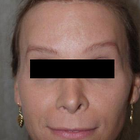
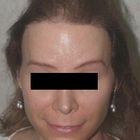
Front view
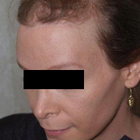

Half-side view


Front view
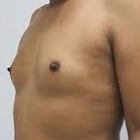

Half-side view
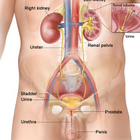
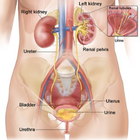
Front view
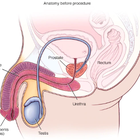
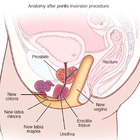
Full-side view
WHY US?
At Medijump, we're making medical easy. You can search, compare, discuss, and book your medical all in one place. We open the door to the best medical providers worldwide, saving you time and energy along the way, and it's all for FREE, no hidden fees, and no price markups guaranteed. So what are you waiting for?

Free

Best Price

Widest Selection

Risk-Free
What you need to know about Sex Reassignment Surgery (Male to Female) in India

Also known as Gender Reassignment or Sex Change Surgery, Sex Reassignment Surgery (SRS) involves the surgical procedures required to change a person’s sexual characteristics from one gender to the other. The procedure can be used to transition a person from Male to Female and from Female to Male. Male to Female procedure involves reshaping of male genitals to appear and function as female genitalia (including a vaginoplasty), hair removal therapy, hormone replacement, facial feminization surgery, and Breast Augmentation.
Hormone treatment is started one year prior to surgery and continues after, where estrogen helps to reshape the body’s contours and stimulates the growth of labia majora. At least one therapist will be required to assess a patient’s psychological wellbeing before the go-ahead can be given.
The decision to have a breast augmentation should be an informed one that takes into account the potential risks and side effects. You should also have realistic expectations about the results of breast implant surgery to avoid disappointment. Find out about the procedure, the recovery period and any possible complications - ask your doctor or surgeon if you are unsure about anything.
What is the cost of Sex Reassignment Surgery (Male to Female) in India?
One of the most common inquiries about the Sex Reassignment Surgery (Male to Female) pertains to its expense. The financial burden associated with the procedure may significantly impact one's decision to pursue it. Nonetheless, it's not easy to pinpoint the exact cost, given that numerous factors can influence it. In India, the total cost of the procedure may fluctuate considerably based on factors like surgeon qualification, the intricacy of the operation, and the span of hospitalization, to name a few.
It's vital to acknowledge that the Sex Reassignment Surgery (Male to Female) is not a one-off event, but entails a succession of treatments and surgeries. Typically, it includes mental health sessions, hormone treatments, and several surgical procedures, all of which add to the general cost. Expenses post-surgery, such as medication, check-up appointments, possible extra surgeries, and supplementary therapies, also require consideration. Furthermore, expenses for travel and lodging in India should be taken into account. For a precise cost approximation, reach out directly to the clinic.
What does a Sex Reassignment Surgery (Male to Female) Procedure Involve?
Clinically speaking, sex change operation is known as “Genitoplasty Procedure”. This type of procedure can be performed to transition an individual from female to male and from male to female.
It is very important to understand that before you undergo surgery, you will need to first transition. Gender transition is a lengthy process that requires a lot of patience and resilience. In addition, it will be of great help if you have a strong support system to back you up in times of difficulty. It’s also essential that you have a therapist to not just help you with your emotional wellbeing before and after the transition, you will also need a letter of recommendation from your therapist before your surgery.
Transitioning from male to female will involve penectomy (removal of the penis), orchiectomy (removal of testes), vaginoplasty (creation of a vagina), and feminizing genitoplasty (creation of female genitalia). During the surgery, you will be induced with a general anesthetic.
You must start hormone treatment a year prior to your surgery to help reshape your body contours and stimulate the growth of your labia majora. Hormone treatment will be continued even after your sex-change operation.
There are popular MTF sex reassignment surgery techniques which you can choose from, two of which are: sex reassignment surgery with skin graft technique - the most popular SRS procedure, vaginal depth is up to 13-15cm (5-6 in). Another is sex reassignment surgery with colon graft - suitable for people with less scrotal skin and those who prefer a lubricated vagina and is considered as the most expensive procedure.
There are other procedures that you can undergo to fully transition from male to female. These may include; breast implants, facial feminization surgery (FFS), and another procedure would be to minimize the appearance of your Adam’s apple, etc. All procedures to help one fully transition will vary on the individual’s need and of course, their budget.
Prerequisites to Surgery
- Patients must be at least 20 years old or have consent from parents / legal guardians for those between 18 and 20.
- At least 12 months of successful and continuous real-life experience living as a woman.
- At least 12 months of continuous hormonal therapy.
- Must consult with a psychiatrist in the home country and in the country where the procedure will be performed (this can be arranged in your chosen hospital in India).
- Physically fit for surgery.
Popular MTF Sex Reassignment Surgery (SRS) Techniques
1. SRS with Penile Skin Inversion
- Suitable for patients who do not want a vagina for sexual intercourse, particularly popular with elderly trans people. Depth is around 2-4 cm (1-2 in) and penile hair removal is required prior to surgery.
- Surgery: 2.5 hours
- Hospitalization: 4 nights
- Recovery time in India: 3-4 weeks
2. SRS with Scrotal Skin Graft
- Scrotal skin is used to create a vaginal depth of up to 13-15 cm (5-6 in), depending on skin quality and quantity (additional depth is possible by using groin skin). This is the most popular SRS procedure.
- Surgery: 4 hours
- Hospitalization: 6 nights
- Recovery time in India: 3-4 weeks
3. SRS with Sigmoid Colon by Laparoscopic Technique
- The Sigmoid colon is used to create the vagina, allowing for greater depth than what is possible with SRS with a scrotal skin graft. More suited to those with less scrotal skin or those who prefer to have a lubricated vagina, like that of a biological woman. By far the most expensive technique.
- Surgery: 6 hours
- Hospitalization: 7 nights
- Recovery time in India: 3-4 weeks
How Long Should I Stay in India for a Sex Reassignment Surgery (Male to Female) Procedure?
A lot of patients prefer having surgery overseas since it is far less expensive and most countries, like India, have a very high success rate in terms of plastic surgery and gender reassignment surgery.
Recovery after surgery will be a long and painful process. It will also require several follow up procedures as well as constant monitoring so you will have to stay a little bit longer at the hospital until you are ready to be discharged. Generally, allow for a minimum of 3 weeks stay in India after your surgery, this will allow for the removal of stitches and a few weeks of follow up visits with the surgeon.
What's the Recovery Time for Sex Reassignment Surgery (Male to Female) Procedures in India?
Smoking before and after the surgery is highly discouraged and avoid smoking for at least two weeks to reduce risks of non-healing.
Most people are able to return to work in about 4-6 weeks after a sex change operation. Furthermore, you can resume strenuous work and exercise after 2 months. It is vital that you strictly follow all medication instructions during your recovery period.
Keep in mind, recuperation incorporates not only physical healing but also emotional rejuvenation. The Sex Reassignment Surgery (Male to Female) implies a noteworthy modification in your way of living and acclimating to an altered body image and social identification requires patience. Mental health guidance proves to be an important element in the healing journey, offering emotional assistance and managing any mental obstacles that come up.
What sort of Aftercare is Required for Sex Reassignment Surgery (Male to Female) Procedures in India?
Social support is very important before and after the surgery, especially the support that comes from your family and loved ones. You have to be socially and emotionally stable before you undergo the operation. This is why it is required that you have proper counseling to help you with your emotional wellbeing. You have to prepare yourself mentally, before, during and after transition because it can be quite overwhelming and stressful.
It is also important that you maintain a regular check-up with your local doctor to monitor the progress of your healing and avoid complications.
What's the Success Rate of Sex Reassignment Surgery (Male to Female) Procedures in India?
The success rate for a sex change is very high nowadays, given technological advancements and the greater experience of surgeons. Gender reassignment surgery from male to female has a higher success rate than female to male; this is why more male transgender people opt for a sex change.
However, given the nature and complexities of this type of surgery, you also have to be aware of its complications, for example, there is always a possible risk of infection, severe pain, given the intrusive nature of the surgeries and the potential for blood clotting and scarring.
Possible side effects may also include a decreased sexual sensation and ability to orgasm, fistula (opening between rectum and vagina), narrowing of vagina and hair growth in the vagina from the grafted tissue and the partial death of tissue used to create the new vagina.
Are there Alternatives to Sex Reassignment Surgery (Male to Female) Procedures in India?
There is no alternative to a sex-change operation for those who want to fully transition their body to match their gender identity. Undergoing gender reassignment surgery will require a lot of time, energy, patience, and of course money. A vast majority of people who experience gender dysphoria never really surgically alter their appearance. Instead, they use creams and hormonal pills to alter their bodily appearance. Estrogens (female hormones) will help develop the breast, widen the hips, help lose facial hair and slightly increase voice pitch.
What Should You Expect Before and After the Procedure
Prior to even undergoing the Sex Reassignment Surgery (Male to Female), those considering this option should be aware that their health care provider will necessitate a thorough evaluation phase. This is implemented to ascertain that the individual is thoroughly prepared, both physically and mentally, for the major changes that the procedure implies. The evaluation generally includes multifaceted assessments of physical and mental health, as well as evaluating certain social circumstances. The objective of these assessments is to gauge the individual's preparedness and appropriateness for the procedure.
In this initial stage, the health care provider implements a cross-disciplinary strategy, typically engaging a collaborative team made up of endocrinologists, psychologists, and surgeons. The aim is the effective provision of required hormone therapy and mental health counseling, alongside addressing any possible health-related issues. This pre-surgery stage also serves to educate and obtain consent, meticulously discussing details such as the implications, possible outcomes, risks, and difficulties related to the Sex Reassignment Surgery (Male to Female). Once approved for surgery, patients should be ready to adhere strictly to all pre-surgery directions to lessen any potential risks and complications during the process.
Post Sex Reassignment Surgery (Male to Female), patients should gear up for a substantial recovery period. This will require dedicated wound maintenance, compliance with prescribed medicines, and following specific physical limitations to assist healing. Depending on the specific nature of the surgery, some patients might also have to adhere to a vaginal dilation plan. This plan necessitates consistent use of dilators to avoid the newly created vagina from becoming narrow during the healing period.
What are Potential Risks of Sex Reassignment Surgery (Male to Female)?
A comprehensive understanding and consideration of prospective hazards and difficulties linked to Sex Reassignment Surgery (Male to Female) is vital before proceeding. As a significant surgical operation, it inherently possesses hazards such as intolerance to anesthesia, surgical infections, hematoma or blood congregating outside the blood vessels, excessive bleeding, or suturing problems. Even with the advancements in modern surgical procedures that help minimize these risks, they cannot be entirely eradicated and, therefore, must be anticipated.
The Sex Reassignment Surgery (Male to Female) encompasses elaborate and multifaceted surgeries like vaginoplasty, which have unique inherent risks. Some of these potential hazards include the possibility of diminished sexual sensitivity, complications in urinary functions, or challenges with the dimensions of the newly formed vagina. Other complications can include issues such as vaginal stenosis, a scenario where the vagina gradually shrinks and lessens over time, or rectovaginal fistula, a rare situation where a connection forms between the rectum and vagina unintentionally. Sometimes, more corrective surgeries might be necessitated due to post-surgical complications.
Popular Procedures to Combine with SRS
- Usually performed in one operation: Orchiectomy to remove the testicles and prevent further production of testosterone, Penectomy to remove the penis and Vaginoplasty to form the female genitalia
- Breast Augmentation to create the breasts, which is usually performed at a later date.
- Facial Feminization Surgery (FFS) and Tracheal Shave to help feminize the facial features and is not necessary for many patients.
- Hair Implants, Hair Removal Therapy, and Continued Hormone Replacement Therapy.
Whilst the information presented here has been accurately sourced and verified by a medical professional for its accuracy, it is still advised to consult with your doctor before pursuing a medical treatment at one of the listed medical providers
No Time?
Tell us what you're looking for and we'll reachout to the top clinics all at once
Enquire Now

Popular Procedures in India
Prices Start From $69

Prices Start From $208

Prices Start From $1,945

Prices Start From $1,795

Prices Start From $889

Recommended Medical Centers in India for Sex Reassignment Surgery (Male to Female)

- Interpreter services
- Translation service
- Religious facilities
- Medical records transfer
- Medical travel insurance
- Health insurance coordination
- TV in the room
- Safe in the room
- Phone in the room
- Private rooms for patients available

- Interpreter services
- Translation service
- Religious facilities
- Medical records transfer
- Medical travel insurance
- Health insurance coordination
- TV in the room
- Safe in the room
- Phone in the room
- Private rooms for patients available

- Interpreter services
- Translation service
- Religious facilities
- Medical records transfer
- Medical travel insurance
- Health insurance coordination
- TV in the room
- Safe in the room
- Phone in the room
- Private rooms for patients available

- Interpreter services
- Translation service
- Religious facilities
- Medical records transfer
- Medical travel insurance
- Health insurance coordination
- TV in the room
- Safe in the room
- Phone in the room
- Private rooms for patients available

- Interpreter services
- Translation service
- Religious facilities
- Medical records transfer
- Medical travel insurance
- Health insurance coordination
- TV in the room
- Safe in the room
- Phone in the room
- Private rooms for patients available

- Interpreter services
- Translation service
- Religious facilities
- Medical records transfer
- Medical travel insurance
- Health insurance coordination
- TV in the room
- Safe in the room
- Phone in the room
- Private rooms for patients available

- Interpreter services
- Translation service
- Religious facilities
- Medical records transfer
- Medical travel insurance
- Health insurance coordination
- TV in the room
- Safe in the room
- Phone in the room
- Private rooms for patients available

- Interpreter services
- Translation service
- Religious facilities
- Medical records transfer
- Medical travel insurance
- Health insurance coordination
- TV in the room
- Safe in the room
- Phone in the room
- Private rooms for patients available

- Interpreter services
- Translation service
- Religious facilities
- Medical records transfer
- Medical travel insurance
- Health insurance coordination
- TV in the room
- Safe in the room
- Phone in the room
- Private rooms for patients available

- Interpreter services
- Translation service
- Religious facilities
- Medical records transfer
- Medical travel insurance
- Health insurance coordination
- TV in the room
- Safe in the room
- Phone in the room
- Private rooms for patients available
Sex Reassignment Surgery (Male to Female) in and around India
About India
As the largest country in South Asia and the seventh-largest in the world, India is home to over one billion inhabitants. This extremely diverse country boasts one of the world’s fastest-growing economies and with its 38 JCI accredited facilities, it’s considered a prime destination for Medical Tourism. India welcomes an ever-increasing number of medical tourists each year, many of which travel for Sex Reassignment Surgery (Male to Female) procedures. Its low-cost medical procedures draw tourists from all over the world, particularly Western and Middle Eastern countries. Highly specialized doctors speak English and the vast majority are trained in the UK or the US, with heart surgery procedures being especially common in India. Local accreditation bodies include the Indian Healthcare Federation, the Indian Medical Tourism Council, the Ministry of Health and Family Welfare, and the National Accreditation Board for Hospitals & Healthcare Providers (NABH)
Popular Parts of India
Home to around 1.3 billion people, India is the second-most populous country in the world, with its multi-ethnic society, spiritual beliefs, architecture, and diverse wildlife.
- Delhi is brimming with colorful modern life and is steeped in history. It is known to have the best food in the world such as Mughalai curries and chaat (vegetarian street food). Visit the Red Fort and witness the fascinating structure influenced by Islamic, Hindu, Persian, and Timurid traditions.
- Mumbai is the most cosmopolitan city in India. Home to Bollywood, India’s film industry, the city has a lot to offer. Stroll around the Gateway of India, shop in Colaba Causeway, watch the sunset in Marine drive, or visit Siddhivinayak Temple and learn about its cultural history.
- Kolkata (Calcutta) was once the capital city of India. It is a perfect blend of the past and the present. The city has charming colonial-era architecture, dynamic suburbs, and the amazing Bengali cuisine. Tourists can discover the creativity of Kurmatuli Idol-makers and visit the incredible Victoria Memorial.
- Jaipur is known as “The Pink City,” it is chaotic, vibrant, and historical. The city, along with Delhi and Agra, is a part of the Golden Triangle that contains the biggest attractions in India. There are many beautiful buildings inside this city, but the most visited one is the Amer/Amber Fort that dates back to Raja Man Singh. It is a World Heritage Site and it offers amazing views of the city.
- Agra is where the magical Taj Mahal stands. The UNESCO World Heritage Site is as astounding as people describe it to be. Mehtab Bagh is another must-visit attraction; it offers the most scenic spot in the city and located just across the river from the Taj Mahal. Agra Fort, located northwest of the Taj, is one of India’s most historic structures.
Weather and Climate in India
There are four climatological seasons in India.
- Summer or pre-monsoon season starts in March and ends in May. April or May is the hottest month. The average temperature is around 23 to 42 °C.
- Monsoon or rainy season lasts for three months from June to September. The season is usually humid and rainy. South India usually receives more rainfall.
- The post-monsoon or autumn season starts from October to November. The sky is usually cloudless.
- Winter occurs from December to February. December and January are the coldest months in the country with an average temperature of 10 to 15 °C and climb steadily from February. This is the peak season for tourism.
The best time to visit India is in the month of March or October when the weather is warm and sunny.
Getting Around in India
Indira Gandhi International Airport is the busiest airport in the country and is located in Delhi. The airport serves domestic and international flights. It connects the city with almost every country around the world and serves budget airlines such as Air Asia India, Go Air, and IndiGo. There are three other main international airports in Mumbai, Chennai, and Bengaluru.
The most affordable way to travel around the city is by bus although it can be very crowded. Buses are very reliable and fast. Airport taxis are available as a quick, easy, and hassle-free transportation mode especially for tourists who carry big baggage.
The best way to get around India is by train. Trains are everywhere and quite affordable with many different classes. The most popular class for travel is the Sleeper Class. It is best to purchase train tickets online.
Buses are a nice option for short-distance travel. Some of the buses can be very uncomfortable but there are luxury buses with air conditioning. Tourists can purchase tickets online, in the station, or even on the buses.
Taxis are relatively affordable, but tourists have to bargain. Tourists can ask the taxi driver to use the meter but the drivers will usually say it’s broken. It is advised to ask your hotel or hostel how much a taxi should cost before getting in one to avoid getting ripped off by taxi drivers. Rickshaws (Tuck-Tuks) are cheaper than taxis, but you also have to bargain. Hiring a car is not recommended due to the lack of respect for traffic laws and the chaos on the roads. Uber is available.
Tourist Visas in India
All visitors need to obtain and apply for a visa to enter India, except the citizens of Nepal and Bhutan. Visa on Arrival is available for citizens of Japan and South Korea. The country provides an online visa application. e-Visa is available for 150 nationalities and valid for 60 days. It is a double-entry visa. There is also a six-month tourist visa for longer trips.
Passport must be valid for at least 180 days after your entry to India and should have at least two blank pages.
Additional Information
- Local Currency: the official currency is the Indian rupee (INR). 1 USD is equivalent to 70 INR.
- Money & Payments: ATMs are widely available. Currencies such as US dollars, euros, and pounds sterling are easy to change throughout the country. Credit and debit cards are accepted in some shops, restaurants, and hotels. Always carry cash because many places still accept cash only. Service fees are sometimes added to the bills automatically in restaurants if it’ 10% tip is reasonable. Taxis and rickshaws do not expect a tip but it is good to tip drivers who are honest.
- Local Language: There are many languages spoken in India including Hindi, Bengali, Telugu, Marathi, Tamil, Urdu, Gujarati, and Punjabi. English is understood by many people especially those in the tourism area and major cities.
- Local Culture and Religion: India is very diverse and multicultural. Hinduism is the largest religion with 79.8% of the population practicing the religion. Islam, Christianity, Sikhism, and other religions are also practiced.
- Public Holidays: India celebrates several major religious holidays. The country has numerous annual festivals such as Holi, Ganesh Festival, Diwali, and Onam.
Popular Searches
- Plastic Surgery in Thailand
- Dental Implants in Thailand
- Hair Transplant in Thailand
- Breast Augmentation Thailand
- Gastric Sleeve in Thailand
- Gender Reassignment Surgery in Thailand
- Laser Hair Removal in Bangkok
- Botox in Bangkok
- Dermatology in Bangkok
- Breast Augmentation in Bangkok
- Coolsculpting in Bangkok
- Veneers in Turkey
- Hair Transplant in Turkey
- Rhinoplasty in Turkey
- Stem Cell Therapy in Mexico
- Rhinoplasty in Mexico
- Liposuction in Mexico
- Coolsculpting in Tijuana
- Rhinoplasty in Korea
- Scar Removal in Korea
- Gastric Sleeve in Turkey
- Bone Marrow Transplant in India
- Invisalign in Malaysia
- Plastic Surgery in the Dominican Republic
- Tummy Tuck in the Dominican Republic
- Plastic and Cosmetic Surgery in Poland
- Rhinoplasty in Poland
- Hair Implant in Poland
- Dental Implants in Poland
- IVF in Turkey


